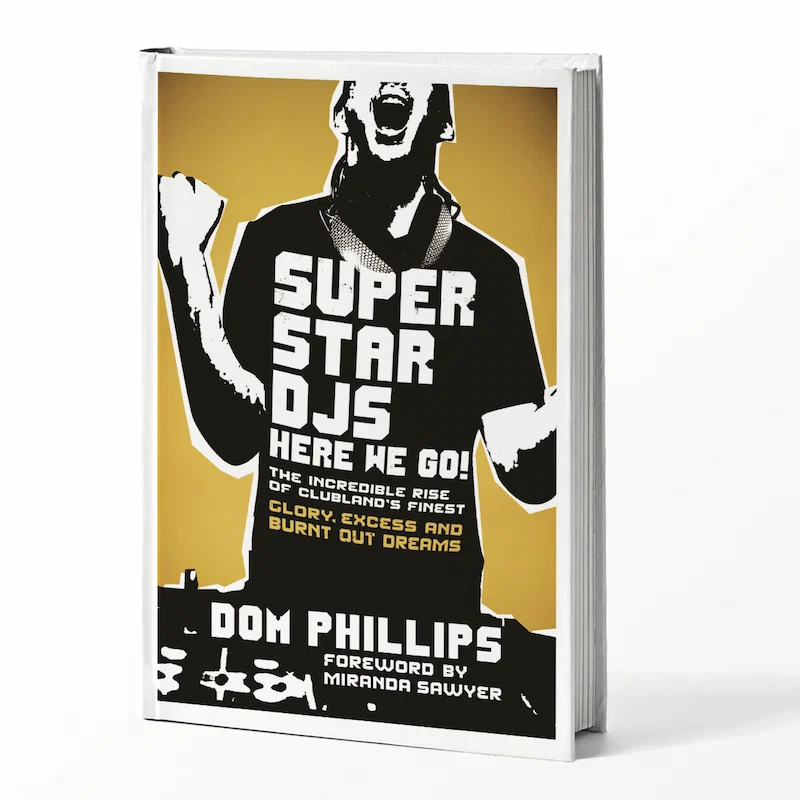Book: Superstar DJs Here We Go. Glory, excess and burnt out dreams

In “What to Read” section, we explore books about electronic music. Today it’s Dom Phillips and his memories in Superstar DJs Here We Go!, which will give a cold shower to those who believe that sweetness and light reigned in the club culture of the 1990s. Maybe this volume is not
Like many young Brits in their twenties, Dom Phillips enthusiastically listened to pirate stations of the late 1980s, and then, with great inspiration, described the rise of electronics in the United Kingdom, having noticed the audience’s awe at DJs and the desire to turn night parties into a way of life. Undoubtedly, when Dom became the editor of Mixmag at the age of 29, he contributed to inflating the egos of DJs, promoters, club owners and labels to astronomical proportions. Of course, along with the scene, the press also grew. When Phillips was
the editor-in-chief, Mixmag went from modest sales prepared by several people in a tiny room to a huge diverse structure with a circulation of 100,000 copies.


